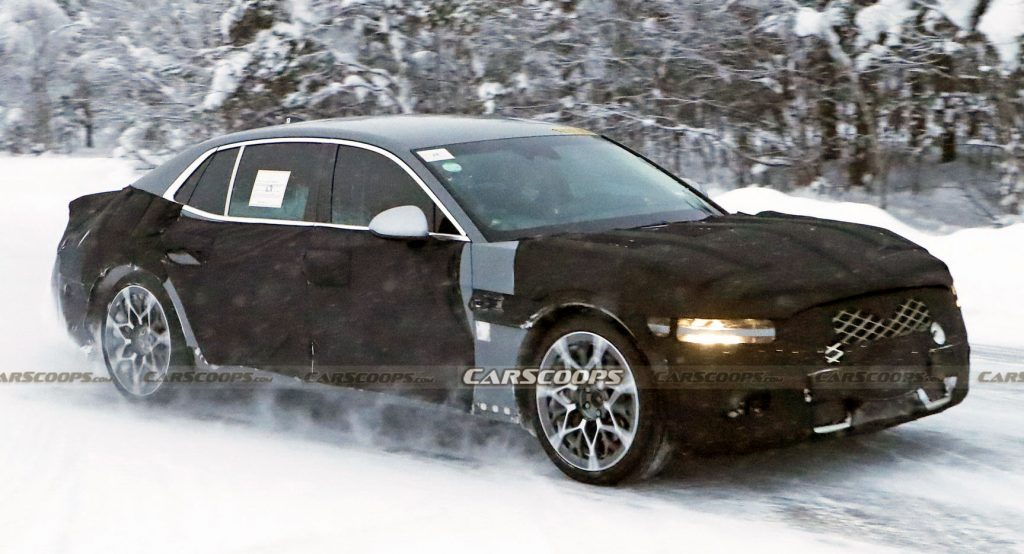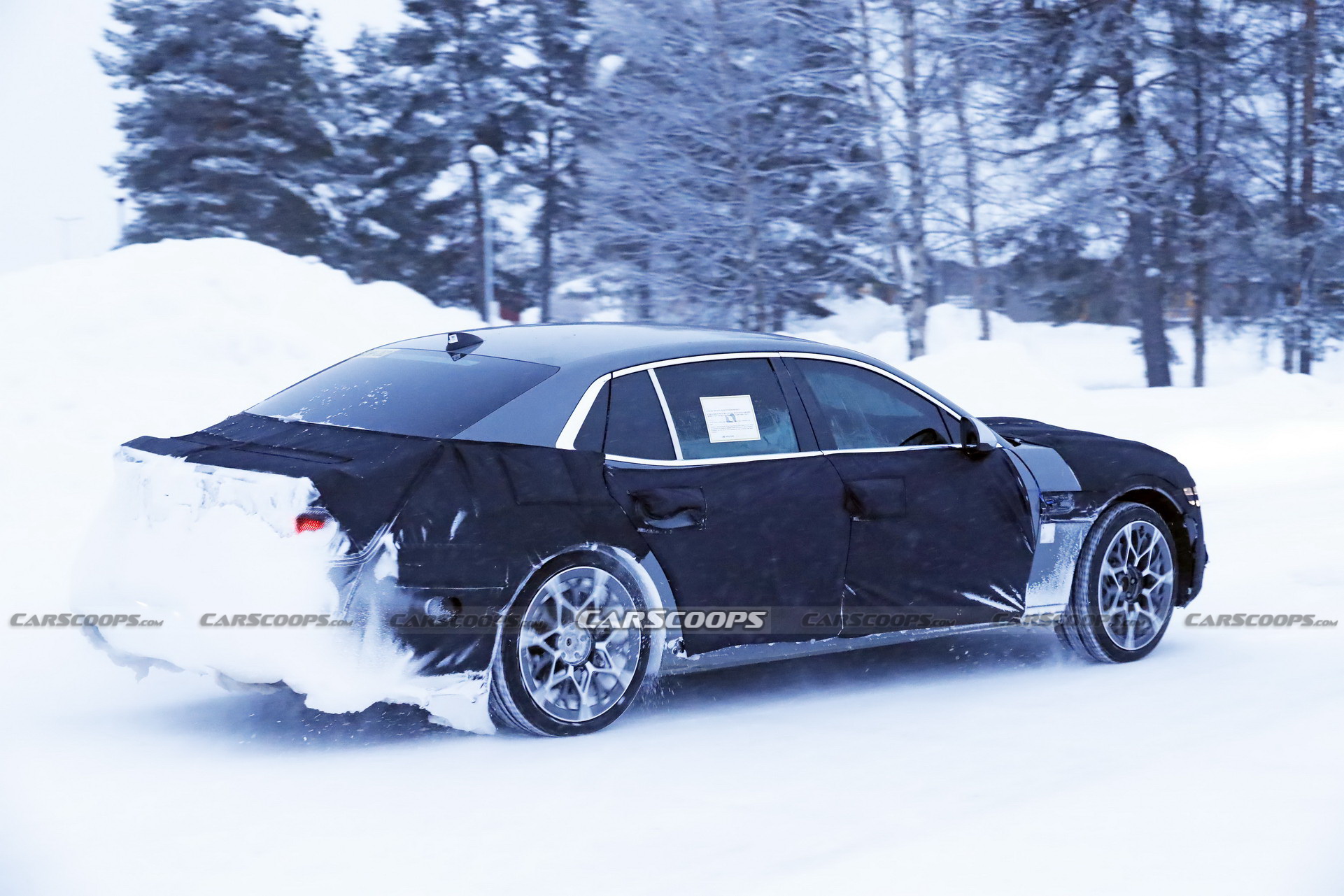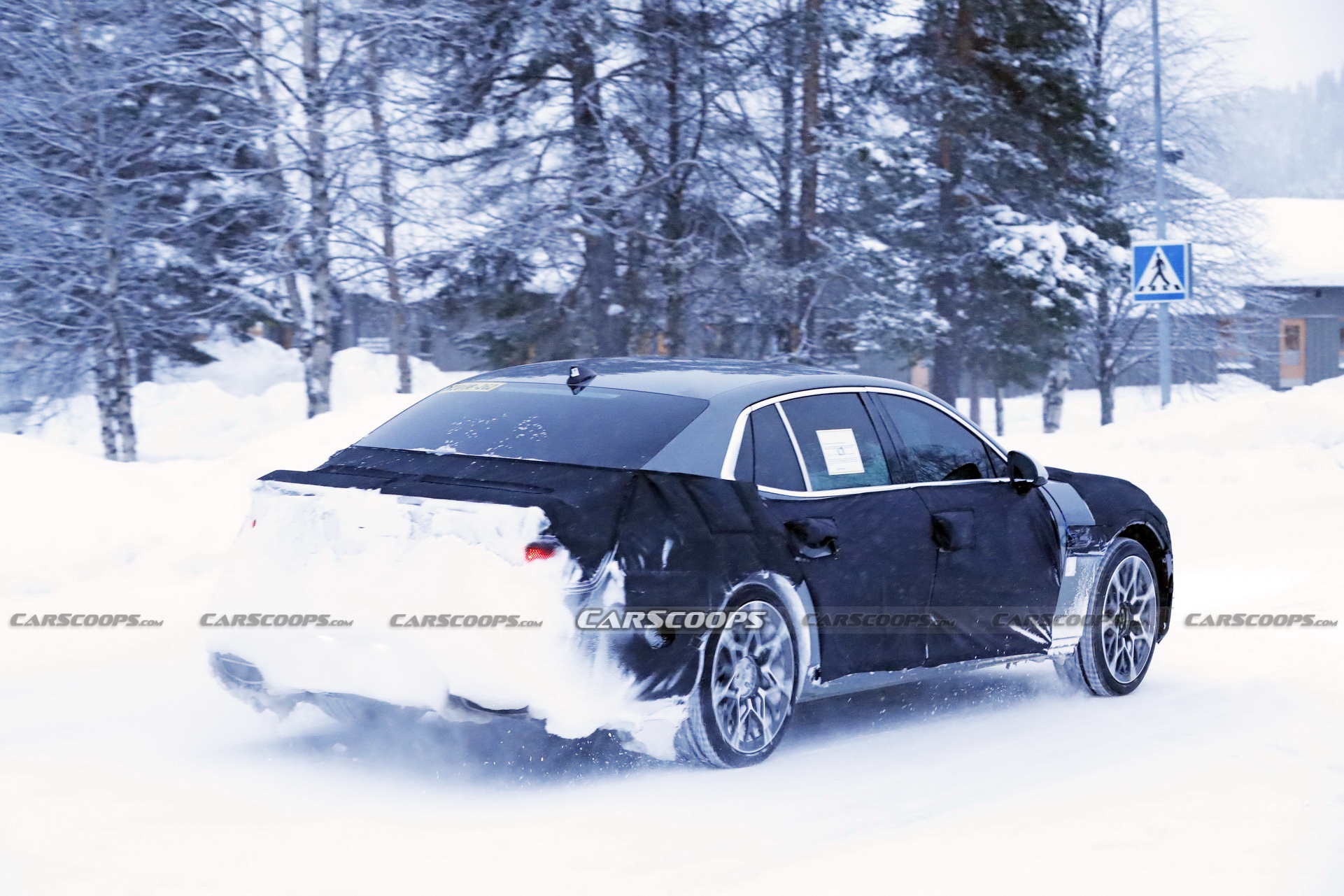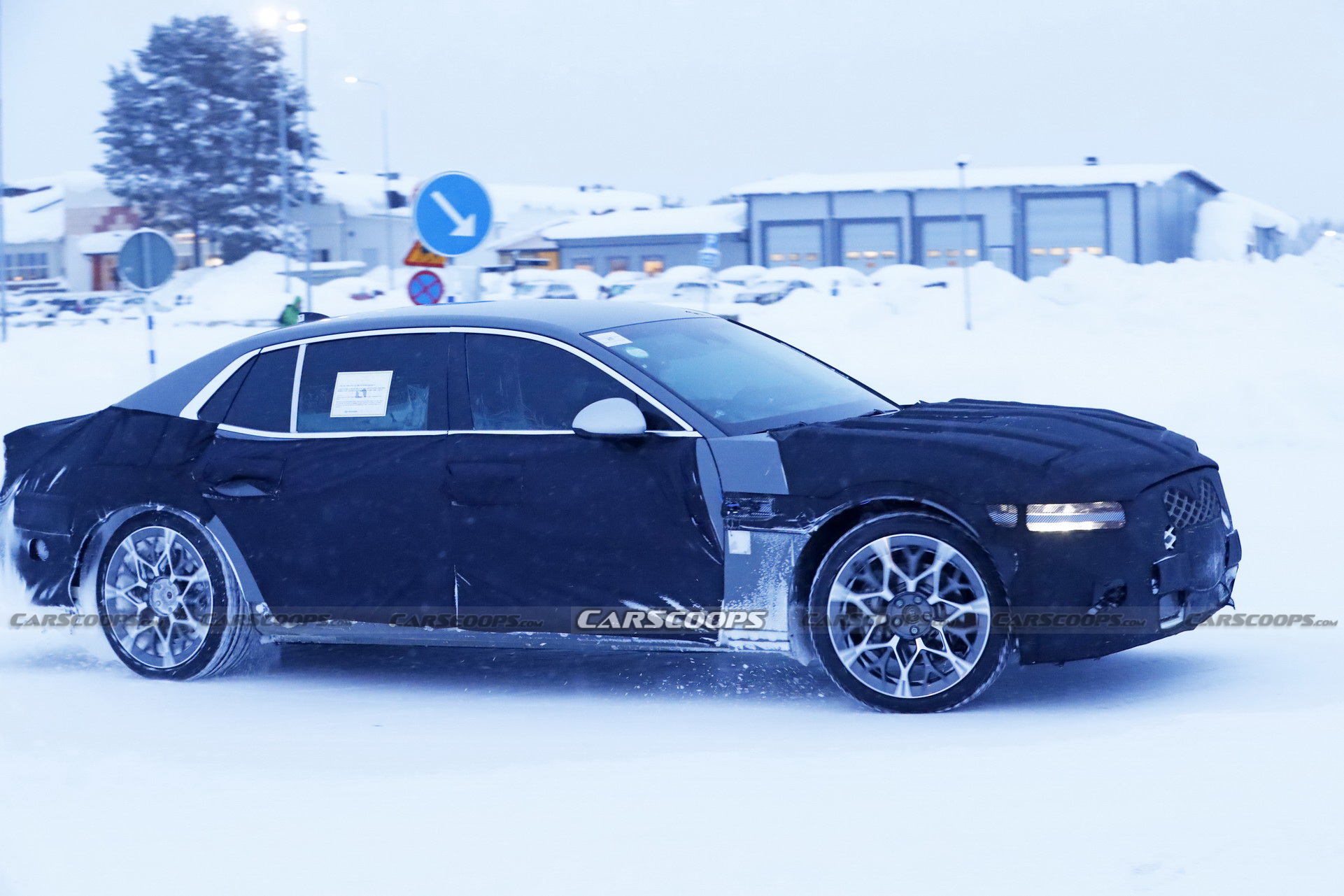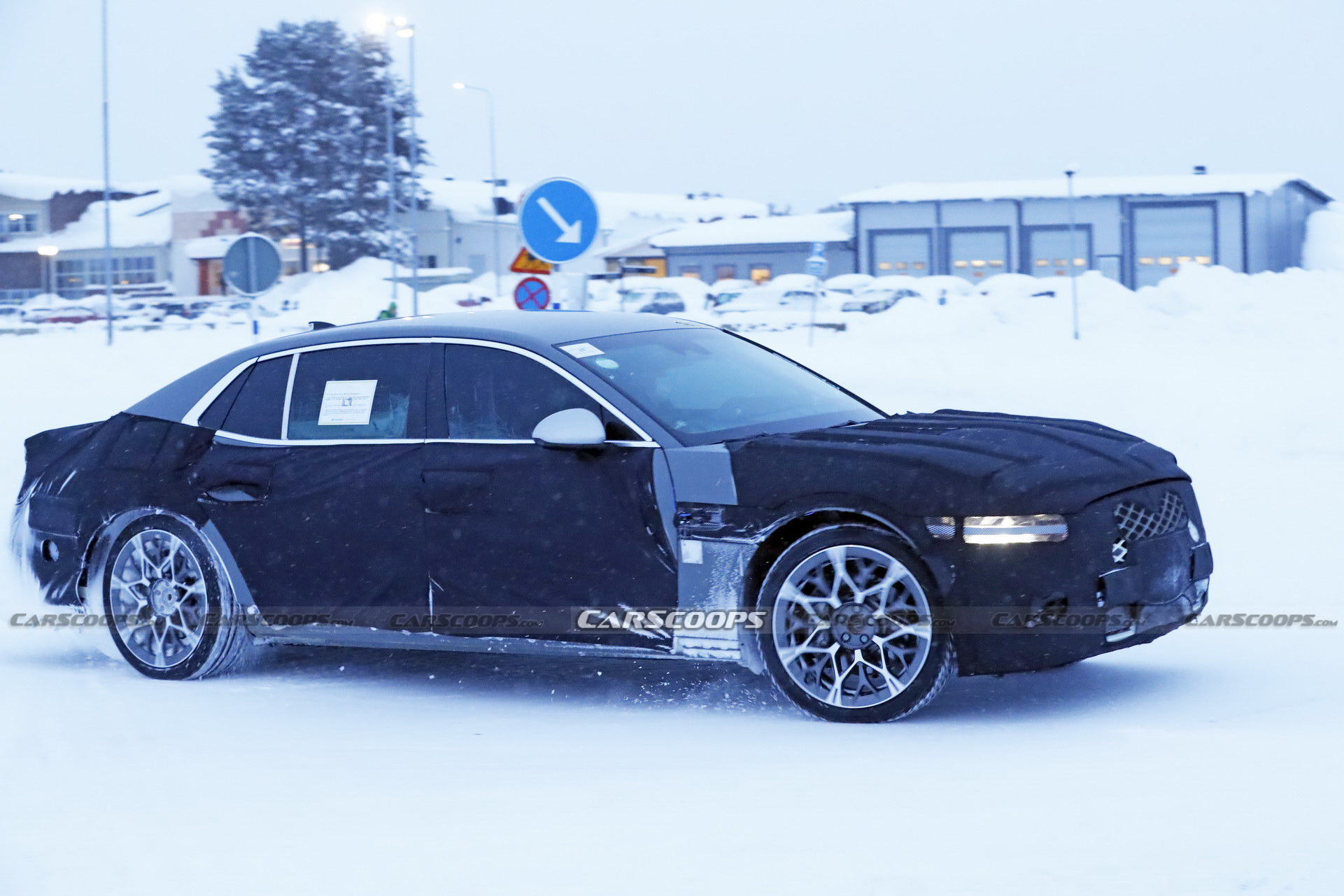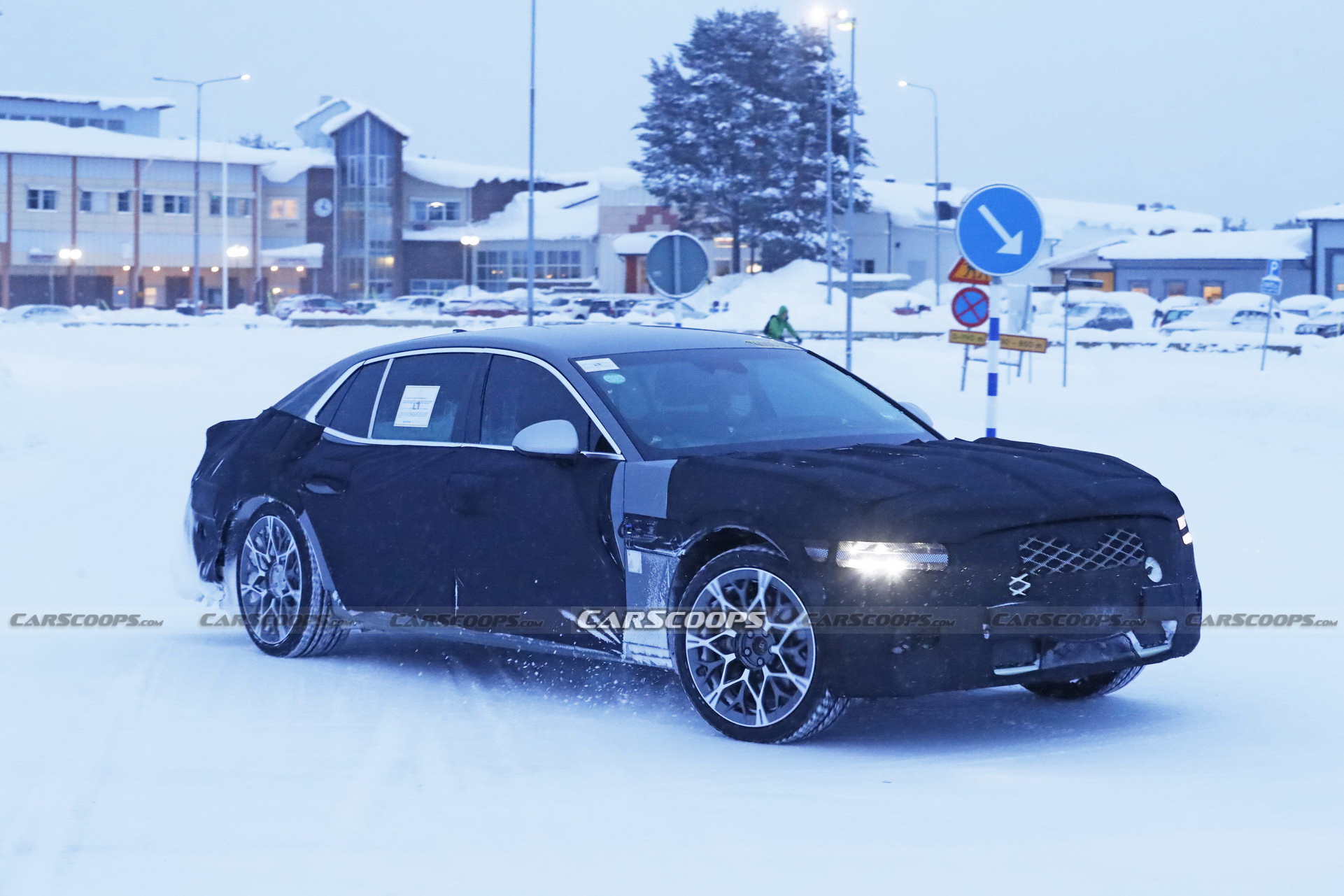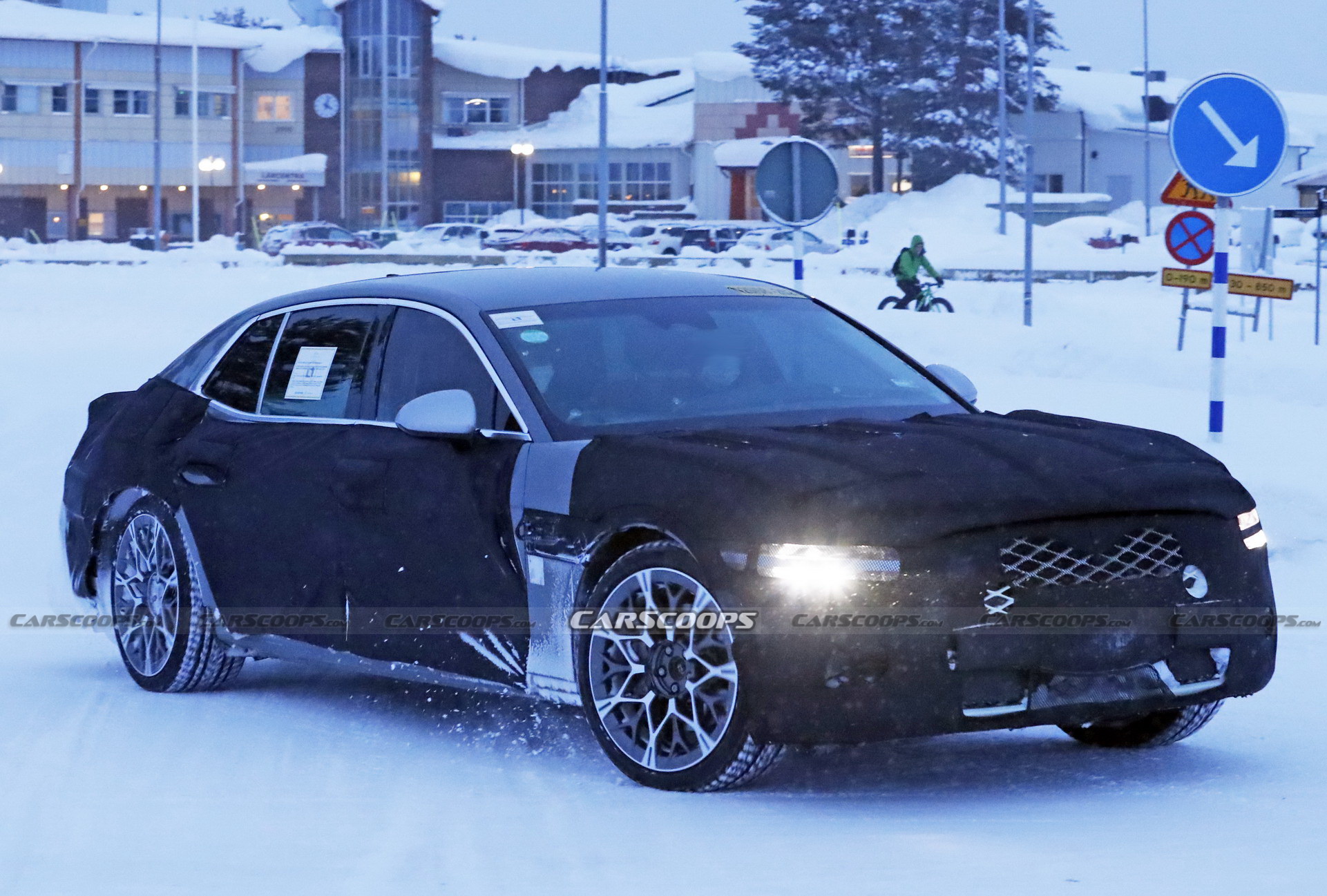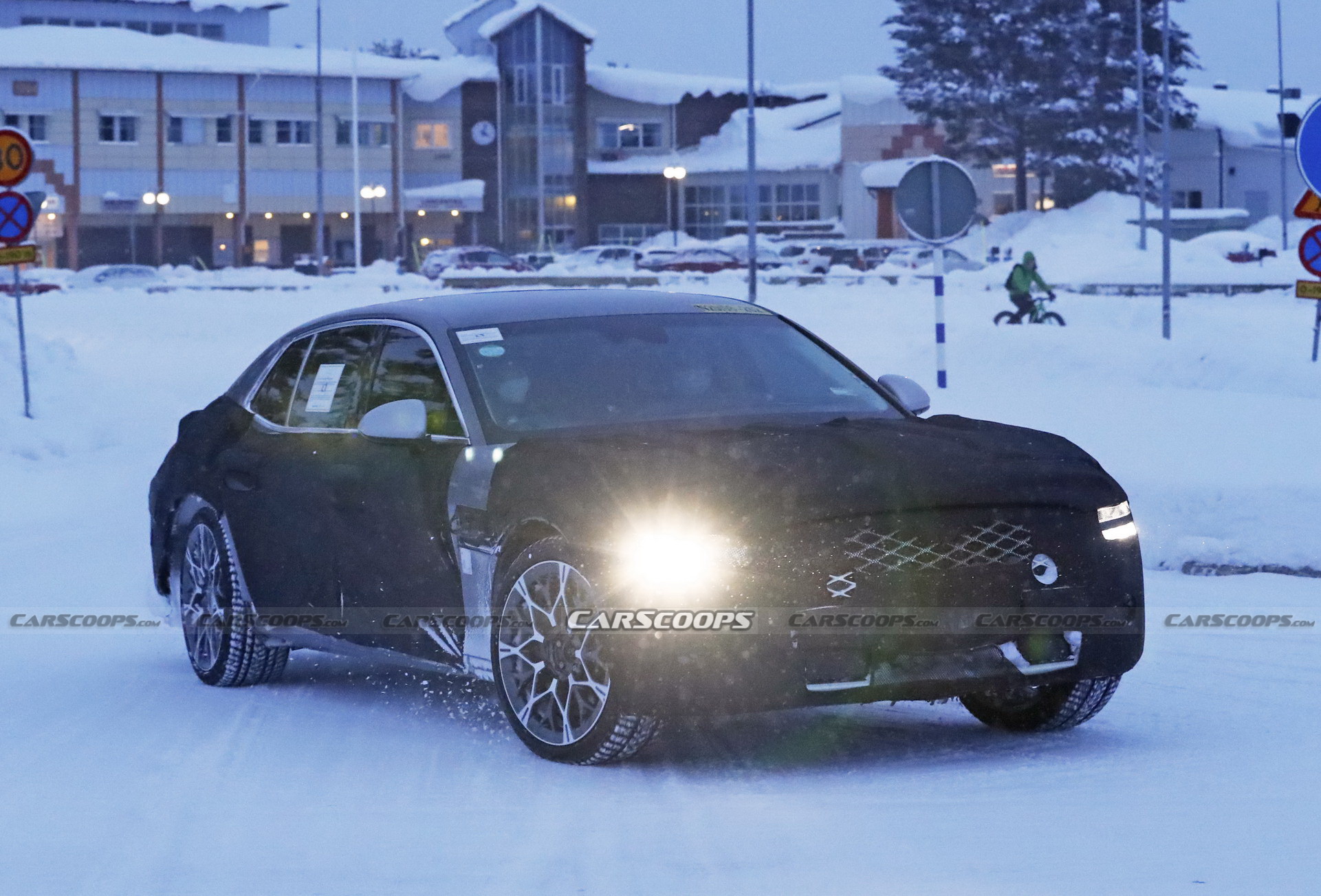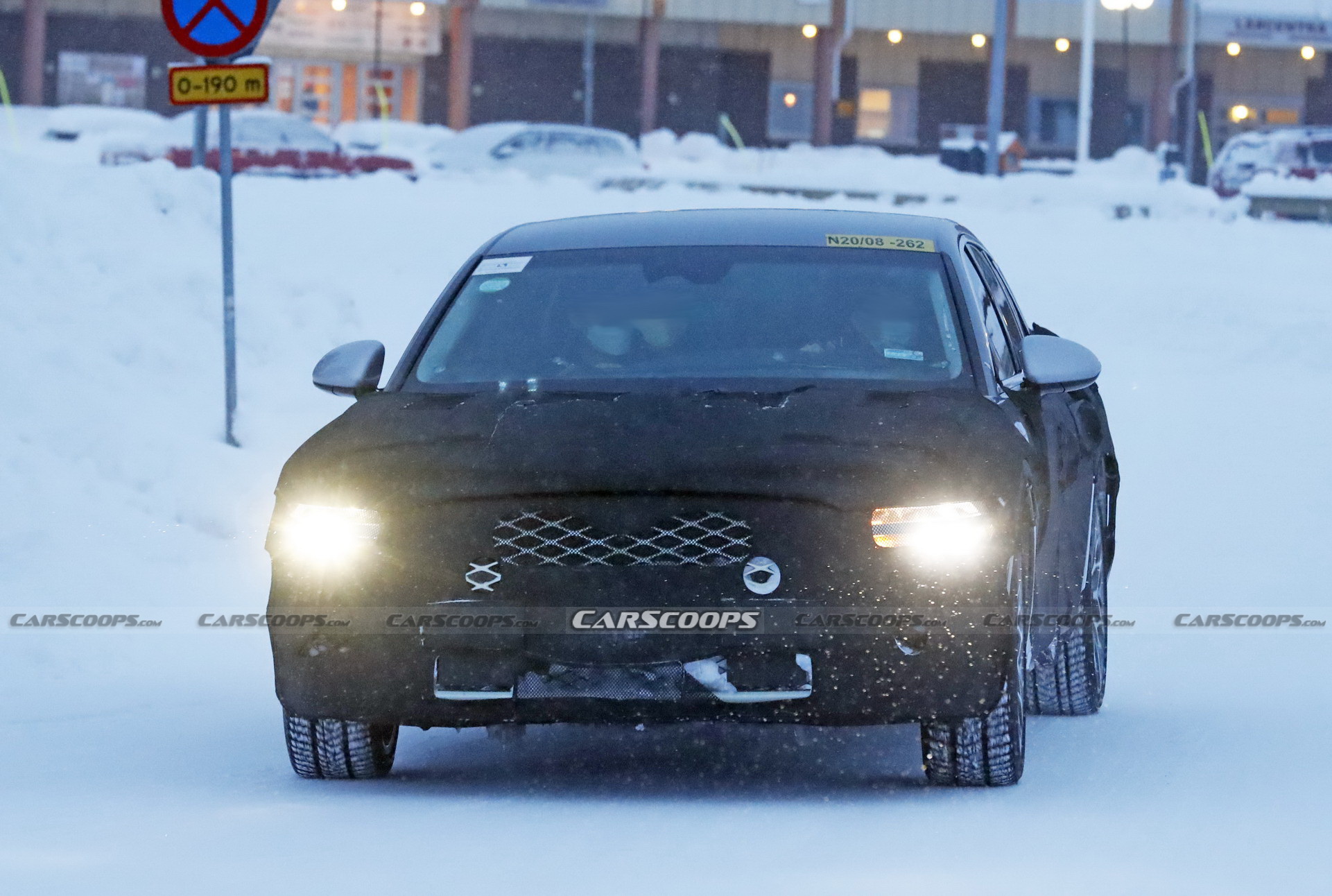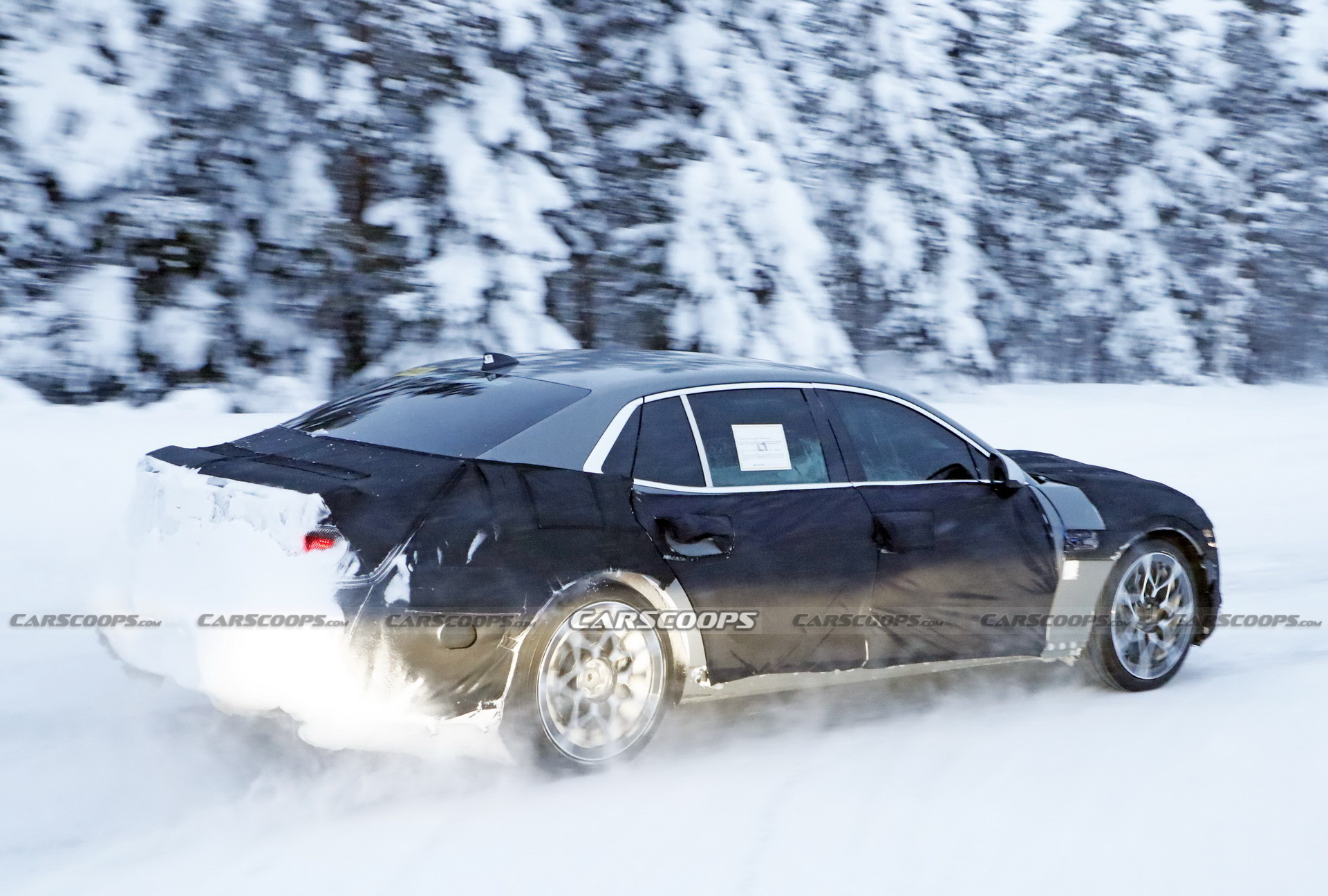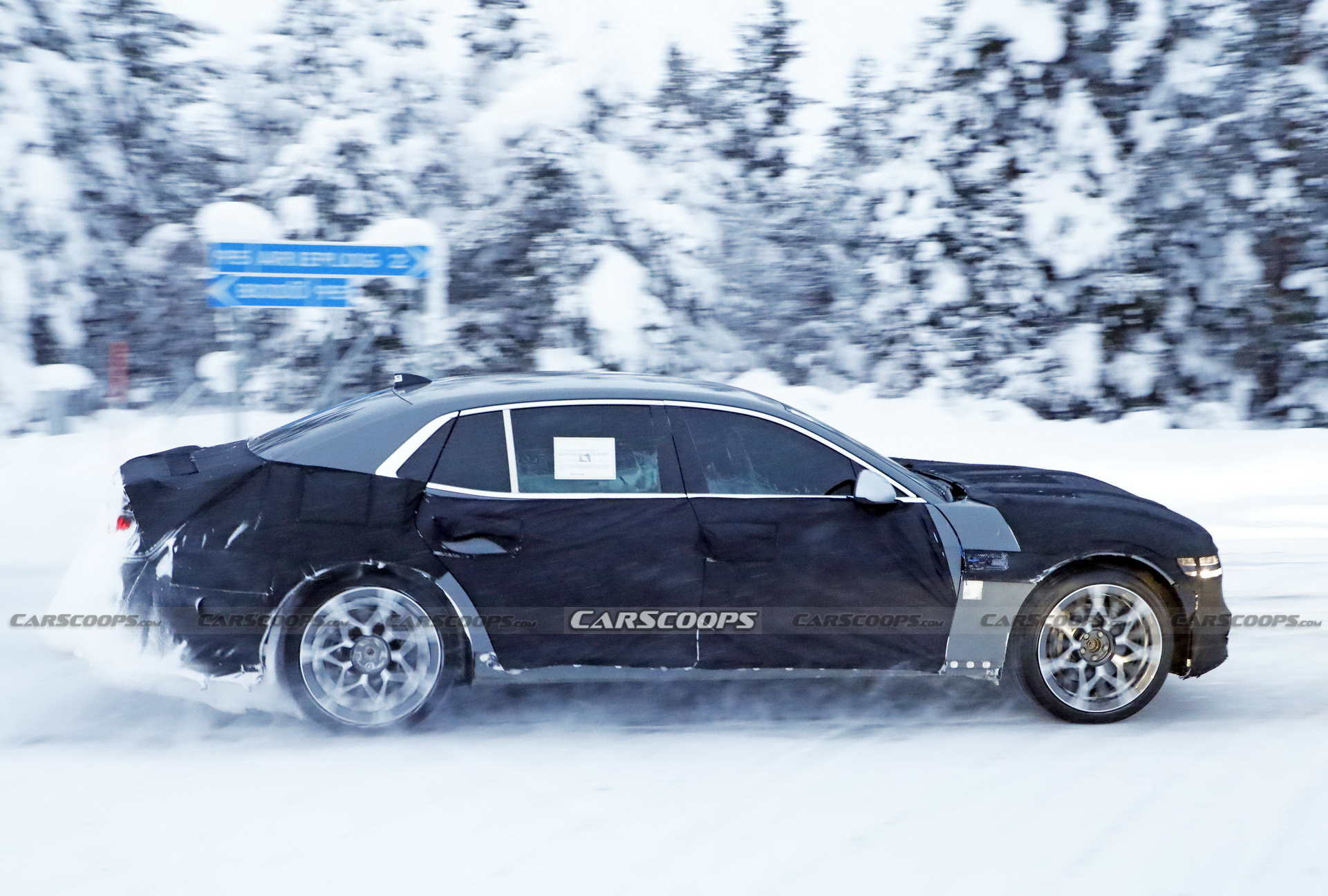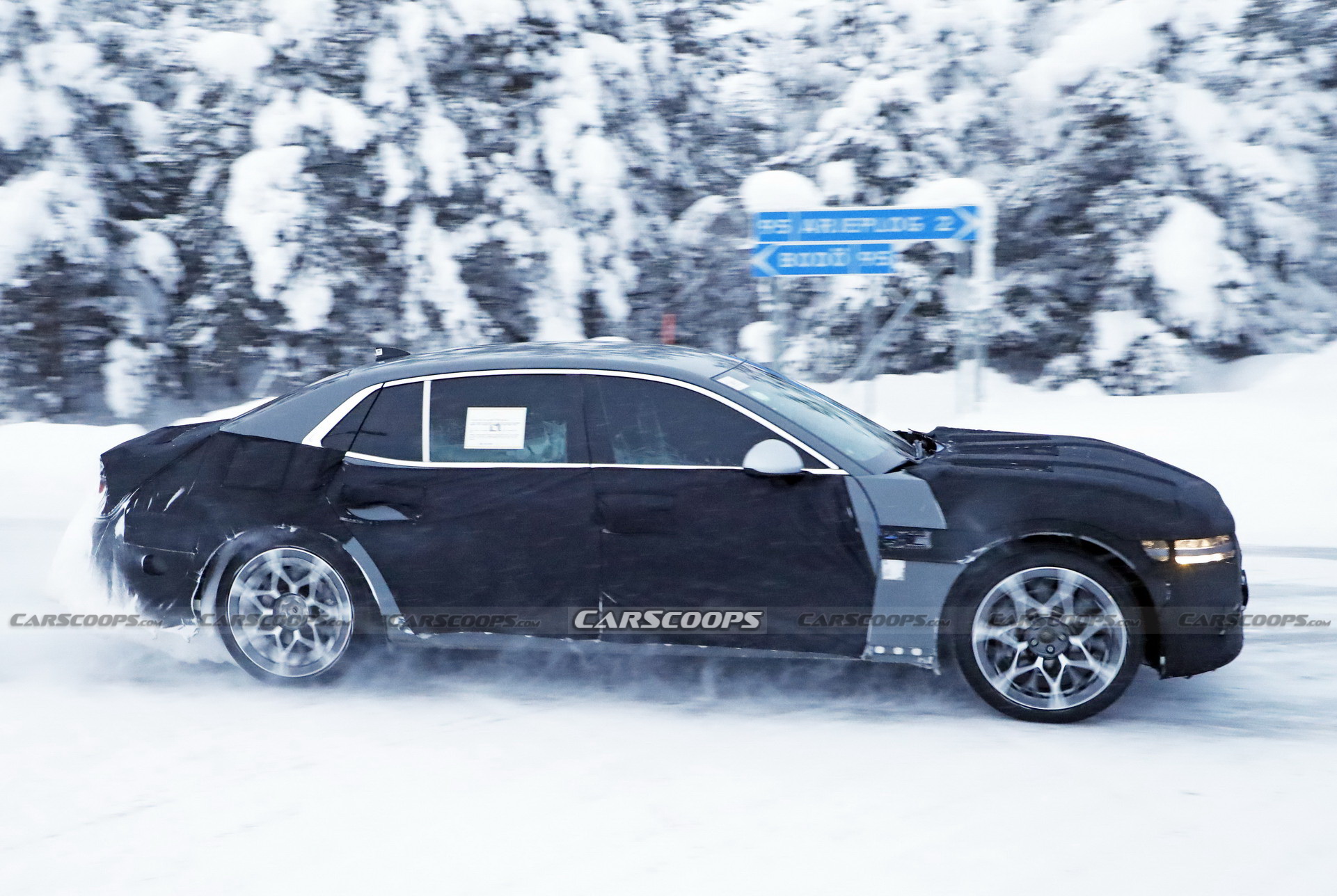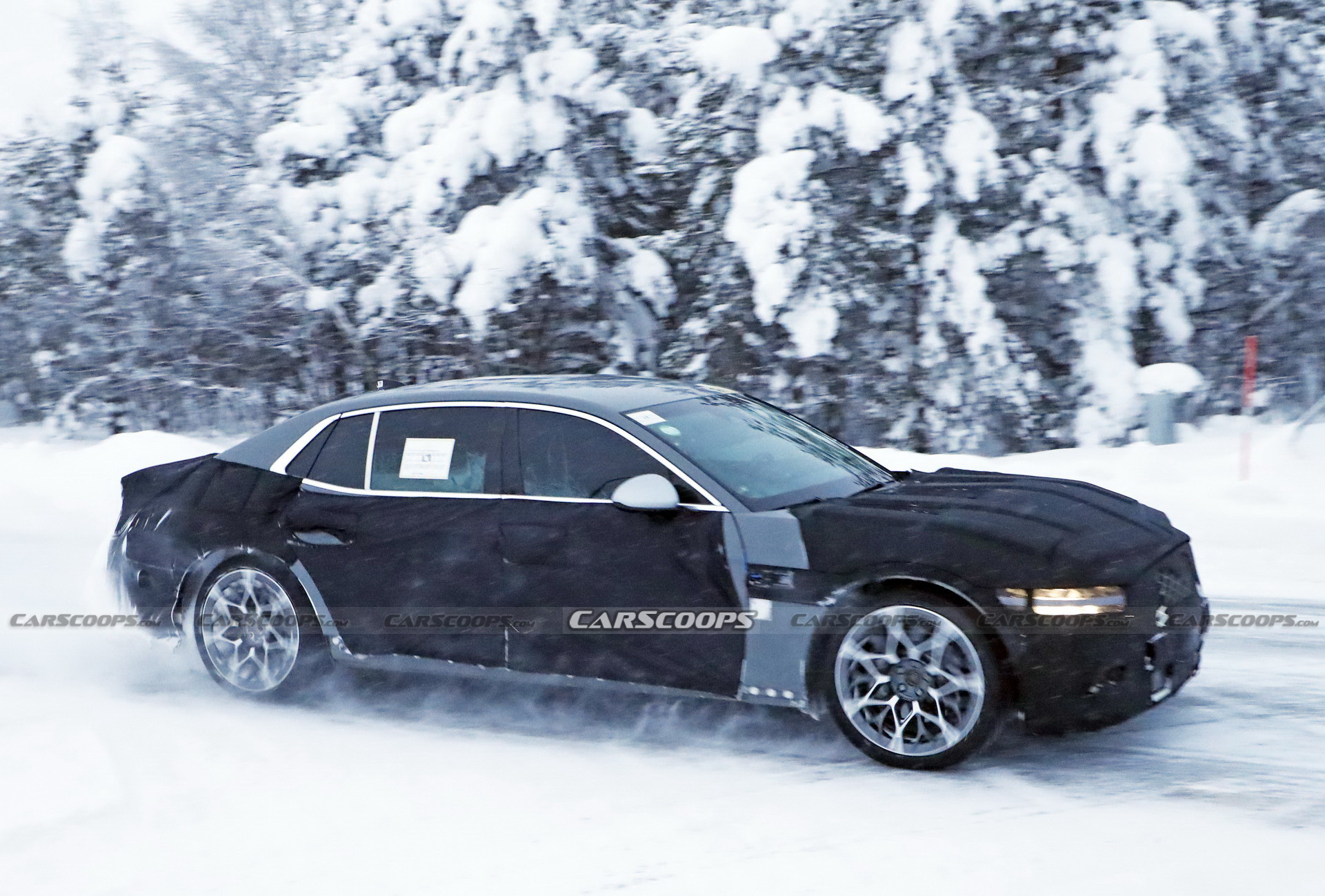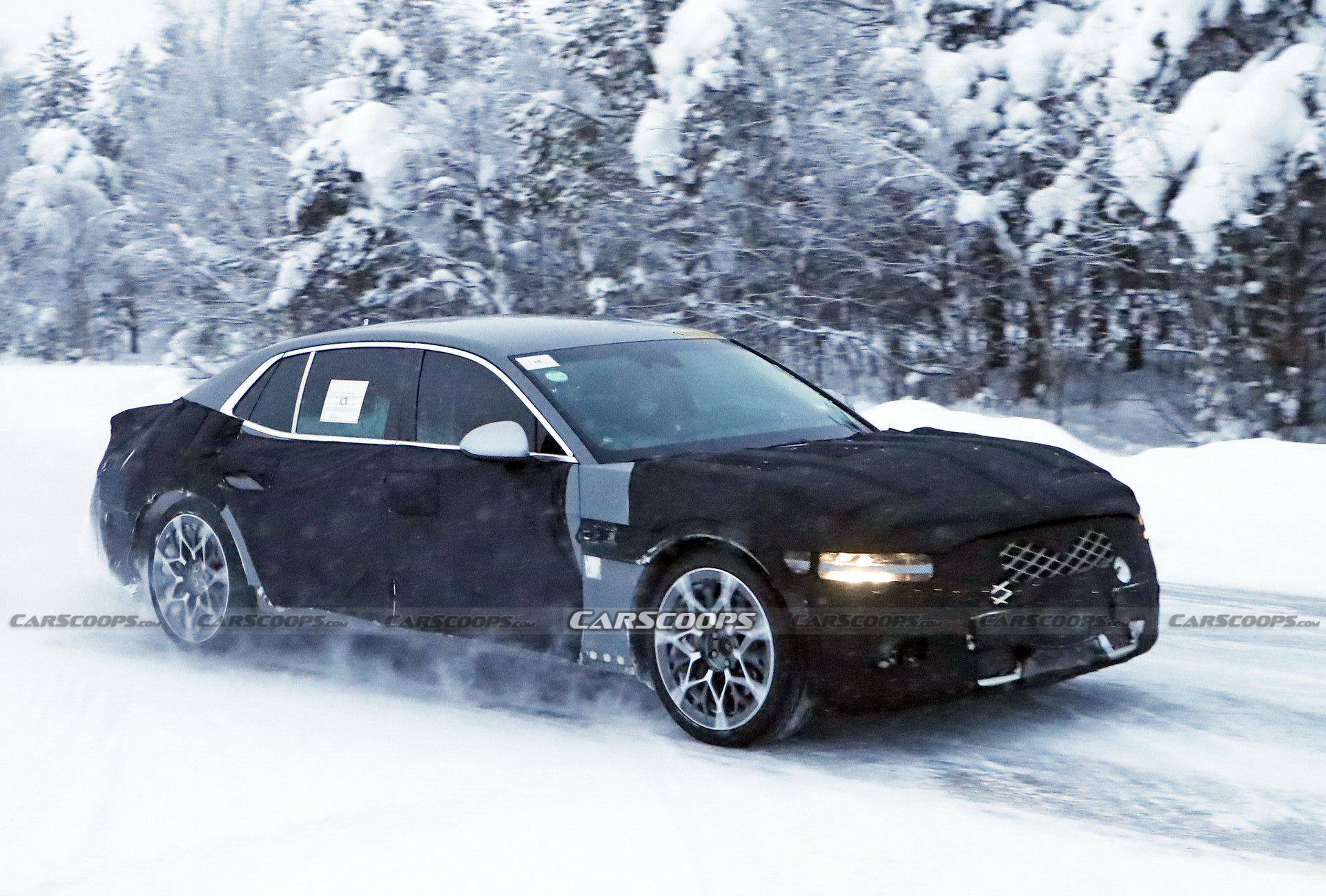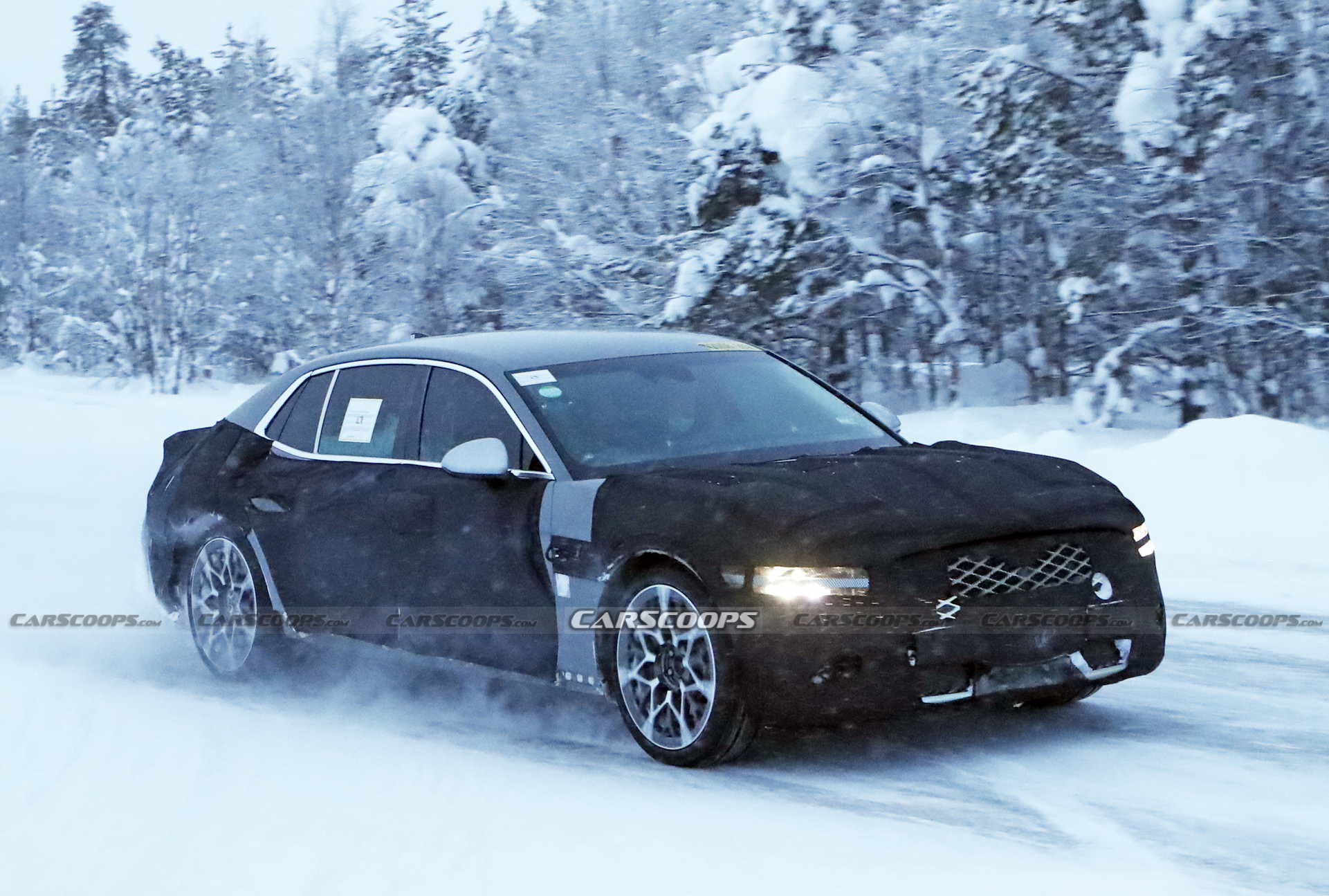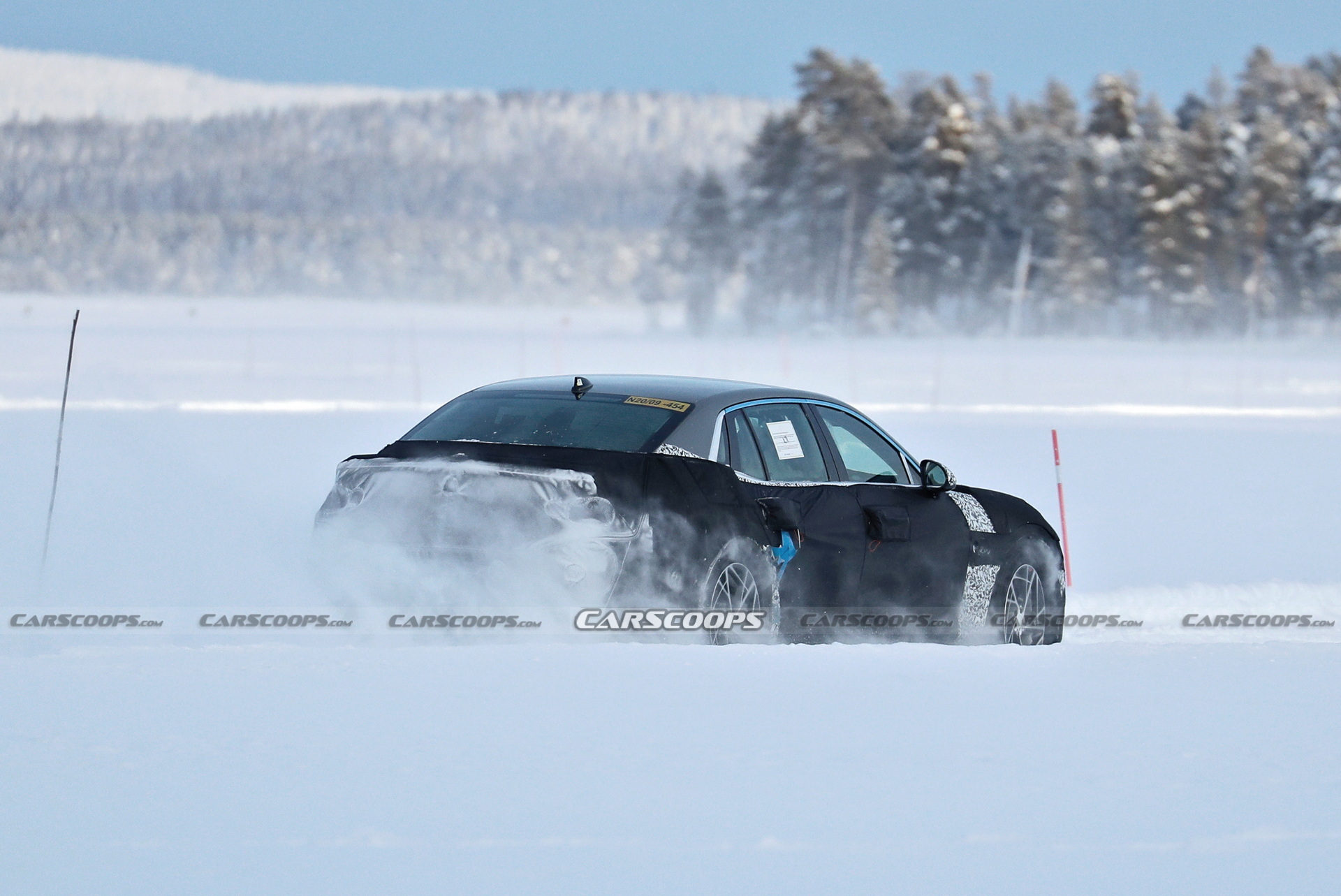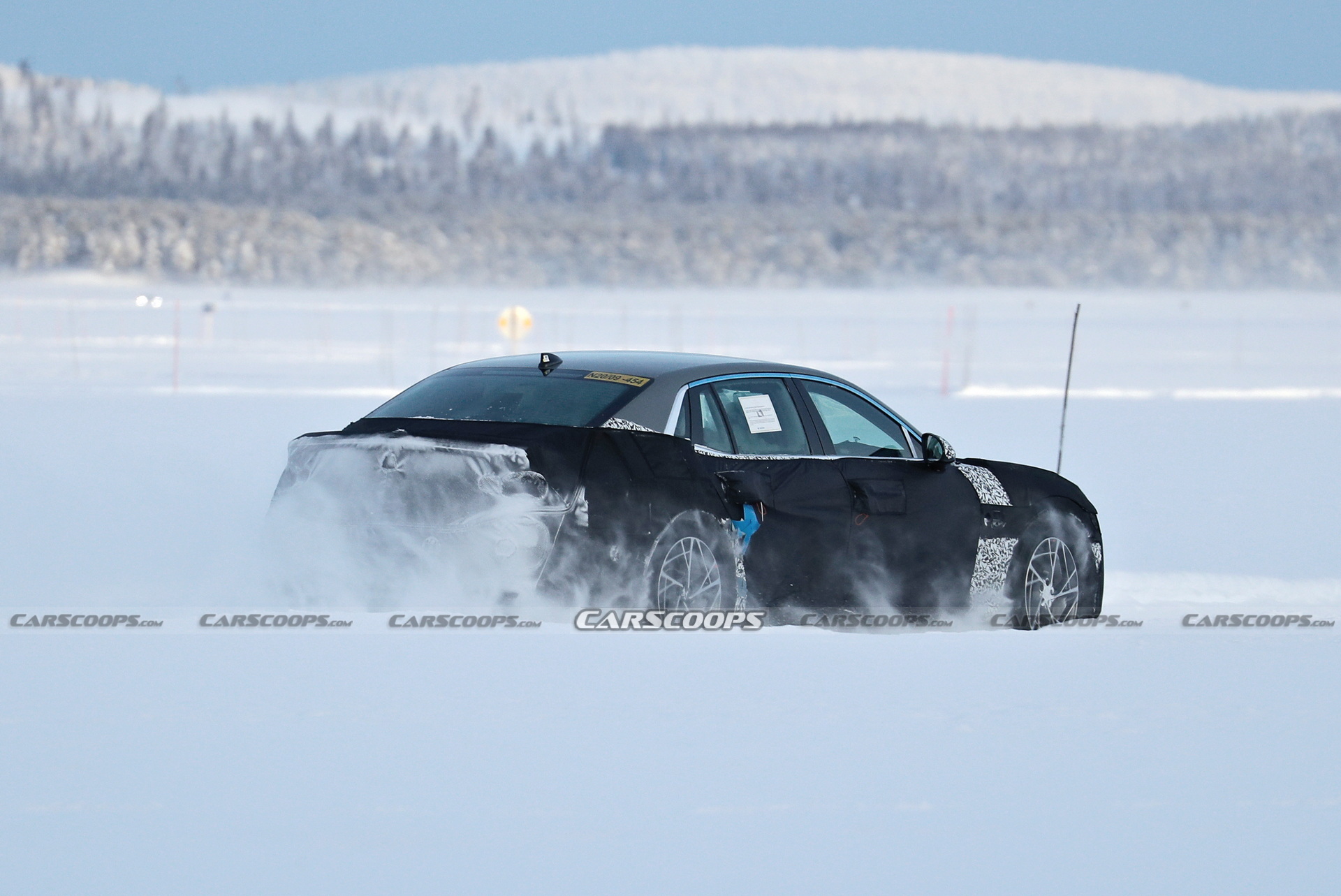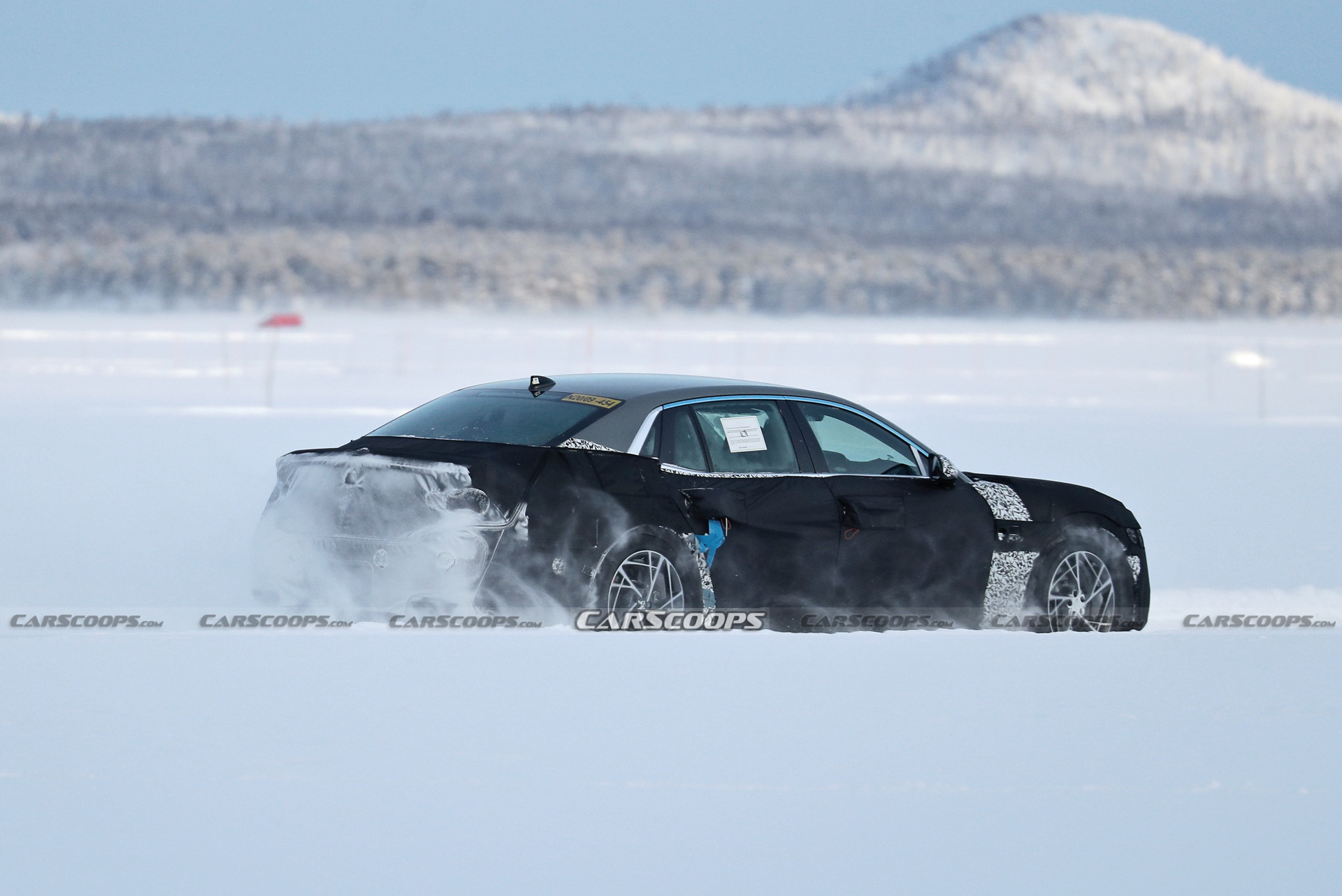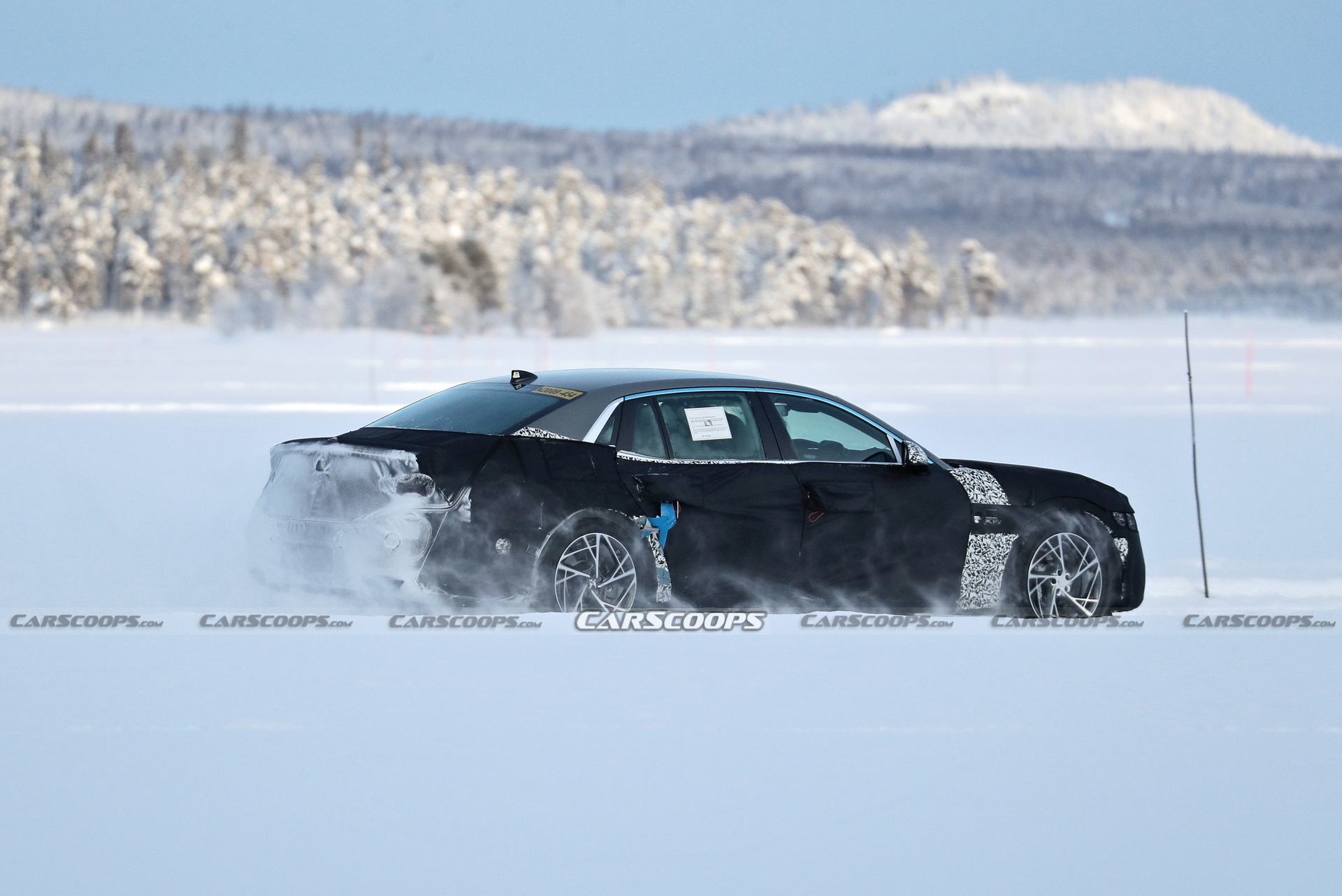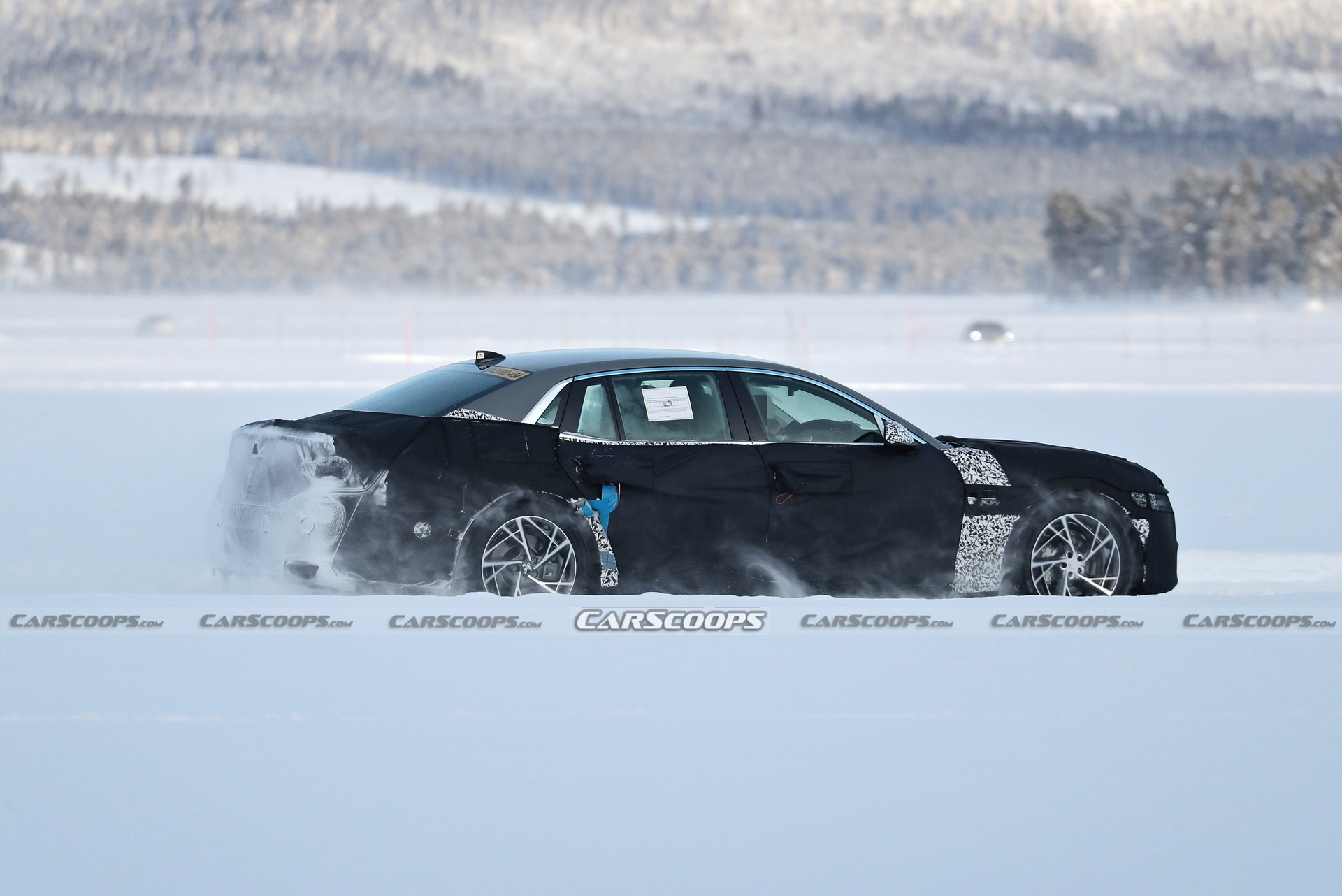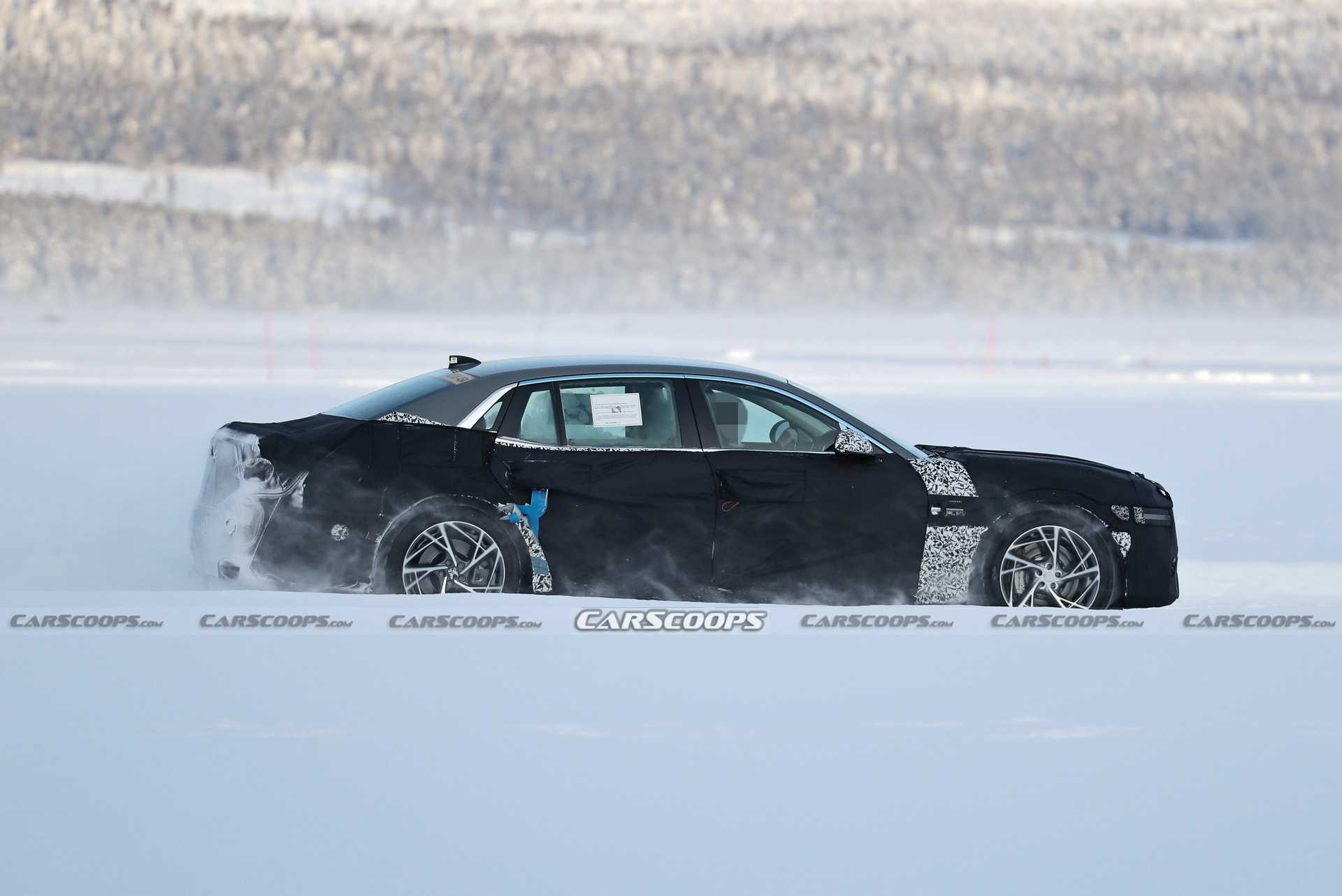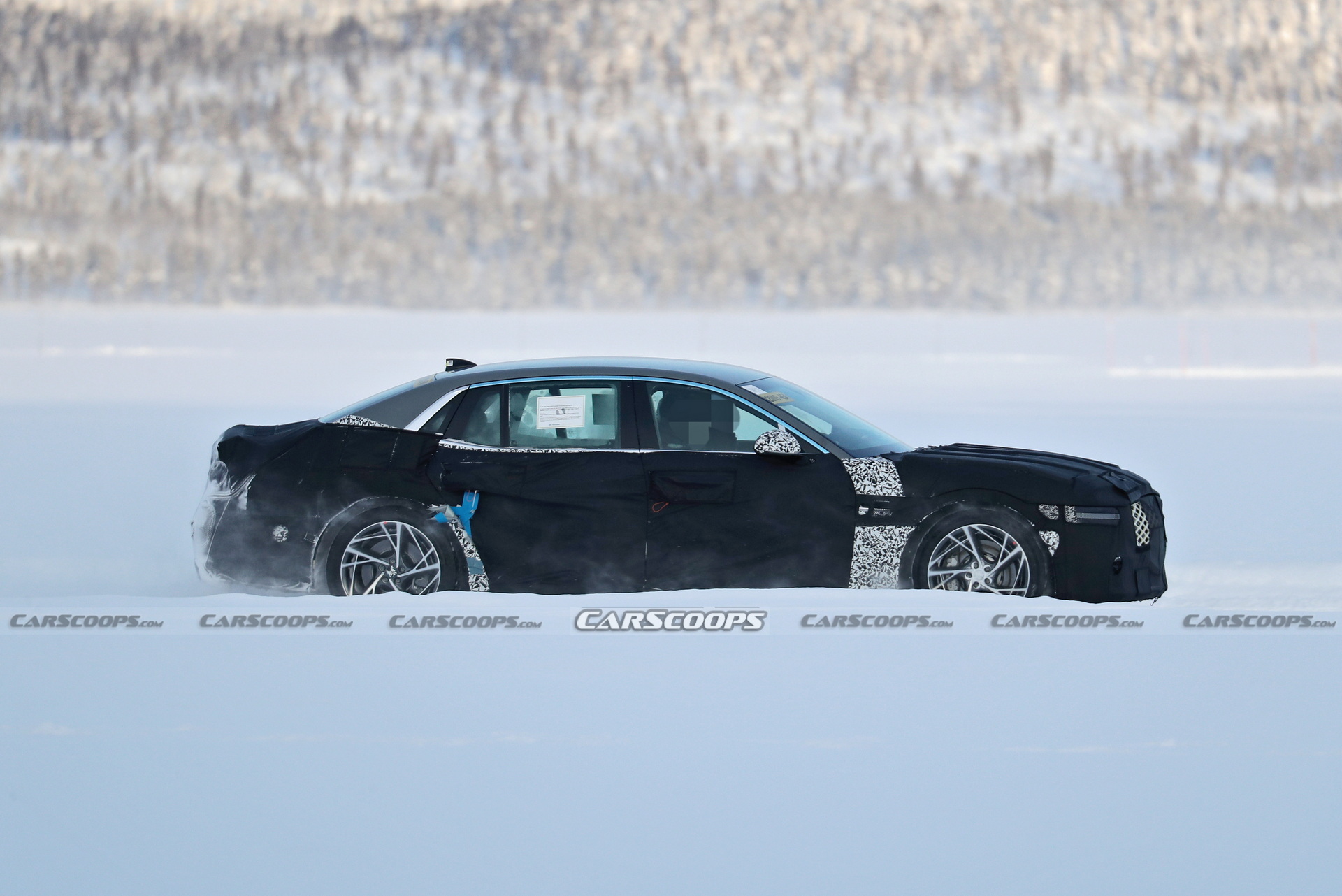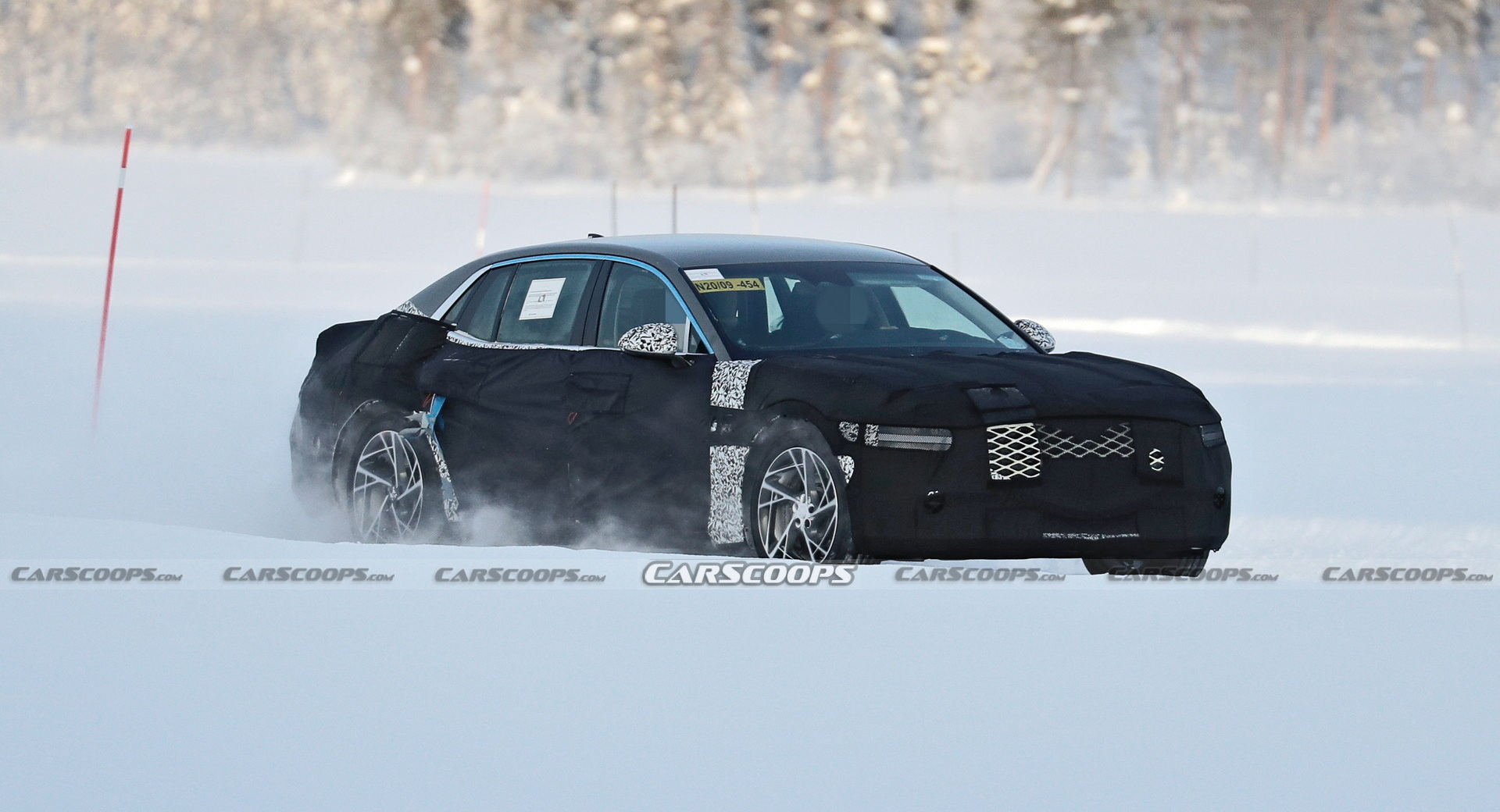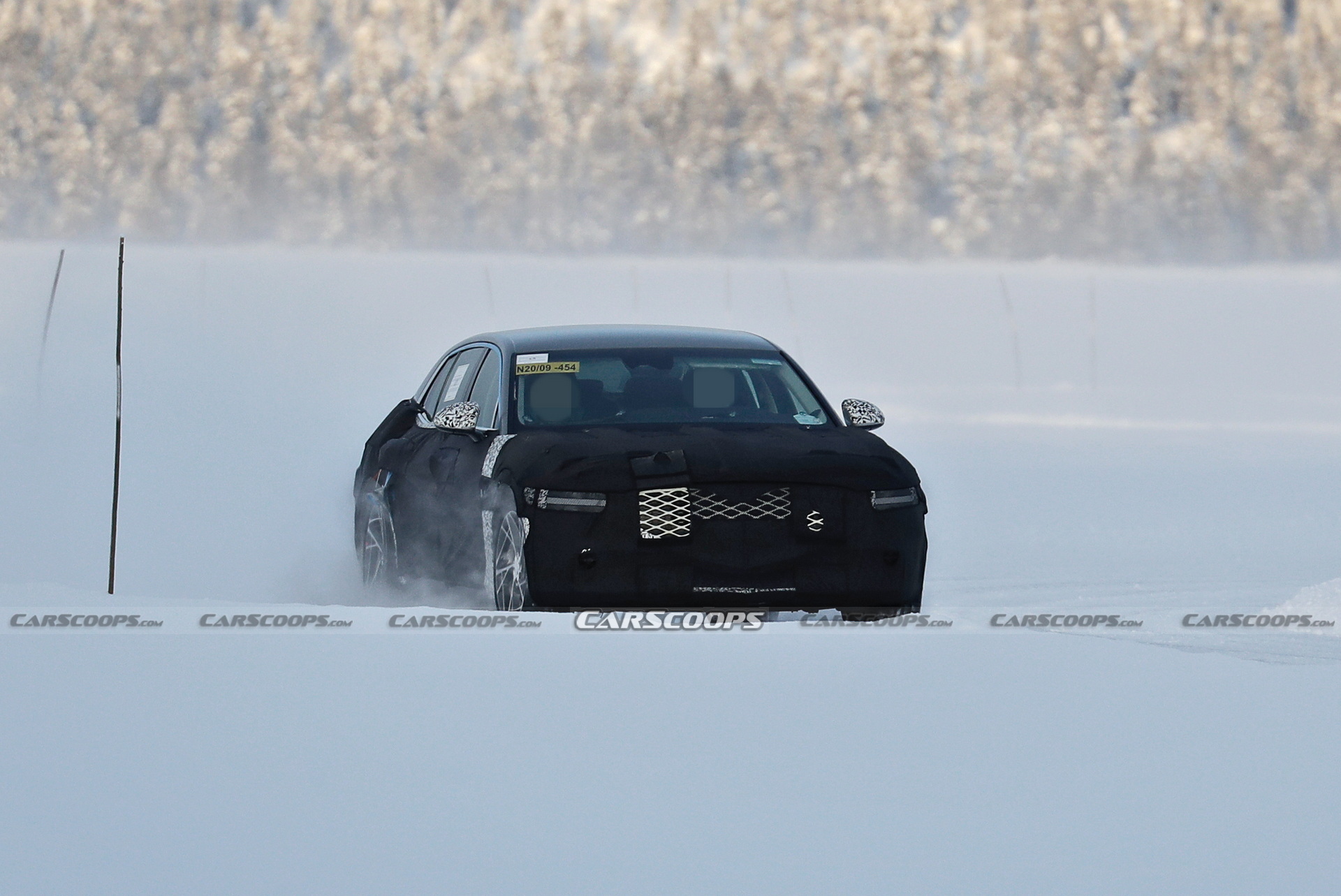For the second time this past week, our spy photographers have come across a disguised prototype of Genesis’ next generation G90 sedan undergoing development in northern Europe. You can get a closer look at it in the fresh pictures we’ve added in the gallery below. [Updated 2/14/2021]
If it feels like only last year that Genesis updated the G90, that’s because it kind of is. The design was thoroughly revised for the 2020 model year, to much acclaim (the faceilift debuted in South Korea in late 2018 followed by North America later in 2019). But the Korean luxury brand seems to already be working on the next generation of its flagship sedan.
The G90 is Genesis’ full-size luxury sedan. As a result, it competes against the likes of the Mercedes S-Class and the BMW 7-Series. Stern rivals to be sure, and competition the current model has been accused of not quite matching.
Indeed, with sales of just a little over 500 in the US in Q4 2020, per Goodcarbadcar, its figures have paled in comparison to the S-Class’s (nearly 2,000), the 7-Series’ (2,200), but approached those of the Audi A8 (700).
Still, with its captivating, if not uncomplicated, looks and its low, low price the Genesis flagship sedan has found some admirers.
Also Read: 2022 Audi A8 Facelift Spied Wearing Redesigned Headlights And Grille
Although it’s hard to glean a lot from these well-camouflaged spy pictures, we have noticed a few things. The headlights look like they’ll continue to be split and may even evolve a bit to incorporate more current Genesis design language.
The proportions of the back door continue to make this feel very much like a limousine, while the roofline looks a little more notchy and a little less coupe-y, to my eye. We’ll be waiting on tenterhooks to find out more.
The current G90 is powered by either a 3.3-liter twin-turbocharged V6 making 365 HP and 376 lb-ft of torque or a 5.0-liter naturally aspirated V8 with 420 HP and 383 lb-ft of torque. Whether or not the new model will retain those engines, or gain some degree of electrification remains to be seen. Given the Hyundai Motor Group’s predilection for electrics, a plug-in hybrid system wouldn’t surprise us at all.
If this indeed is a 2023 model, that could mean a Korean reveal as early as at the end of 2021 or early 2022 followed shortly after by an introduction in North America, but we’ll have to wait and see for now, unfortunately.




